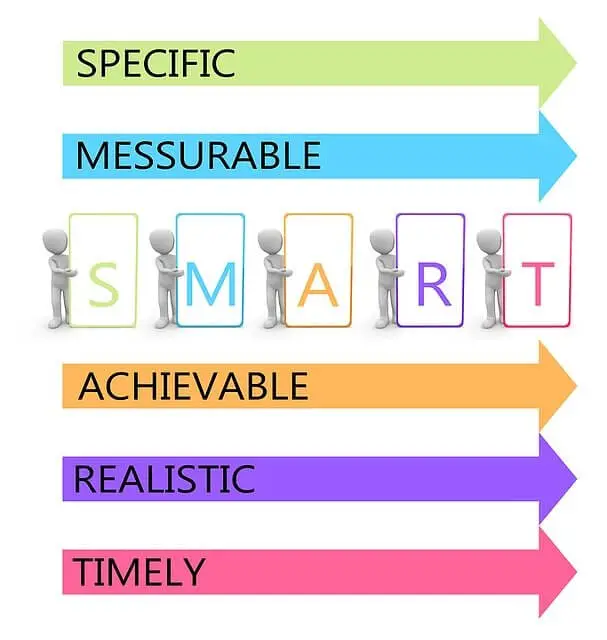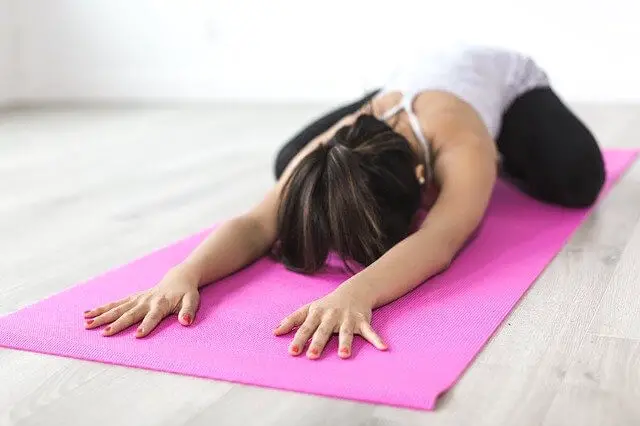Whether you want to start eating more vegetables or taking the stairs instead of the elevator, it’s always easier to create a new goal than to stick to it. How many of your new year’s resolutions have failed in the first week?
The good news is that even minor adjustments and new tiny habits can have a significant impact on your life!
Let’s look at 10 tips and tricks for successfully making a new habit stick so that you’re able to create an overall healthier lifestyle for yourself.
1) Start with Small Steps

The best way to make new healthy habits part of your identity is to take baby steps first.
If your aim is weight loss, why not try replacing the junk food in your weekly shop with a healthy snack? This isn’t to say you should set small goals, the power of habit building is that it can make dramatic changes to your life, but if you try to change everything in one day you are more likely to give up before you see results.
For example, try starting with something like “read two pages in my personal development book every morning” or “walk for 20 minutes every day after work.” These are things that can be easily incorporated into your already scheduled activities.
For each task you choose, create a specific and visible reminder of the habit (e.g., put up a note on the refrigerator door). This increases accountability and makes sure you don’t forget about your goal when you’re busy with other things.
2) Make each habit daily.

By making something a habit we need to do it enough times that it becomes second nature to us.
Daily habits are more likely to stick long term as you are repeating your behavior change every single day.
If your goal is to “make your bed daily” it’s easier to make it a habit because it’s something you do every day.
A great way to prompt this is an alarm or reminder for your new habit that will go off at a time you’re likely to do the action.
3) Track your progress.

It’s super important to set yourself up for success by setting goals for what you hope to achieve with your new habit. Remember your goals should always be SMART.
Keeping a journal or log will help you be accountable to yourself and stay motivated! Record the time of day or night that you do the behavior, how long it takes, and your thoughts at the time. Having this written down on a piece of paper can be really motivating when you’re feeling low and struggling to keep up with your habit.
You may also want to write down obstacles or anything else worth noting for future reference. (e.g., “I had trouble getting out of bed early this morning until I reminded myself why doing so is important to me”).
4) Habit Stack

This is a great hack that will help you cement your new habit. You will already have daily habits, such as your morning routine if you can add new behaviors to your old habit it will make you much more likely to achieve your end goal. For example, if the first thing you do when you wake is reach for your morning coffee could you sneak a small habit like a daily gratitude practice, or packing your gym bag while you wait for the kettle to boil?
Habits that are tied to other daily events make them easier to keep up with. “Walk briskly while brushing your teeth every day” is a simple way to add an extra 1,000 steps or more to your step count.
Listening to your Spanish lessons while doing dishes is also an example of tethering or “habit stacking”. If you can stack one habit that you are already great at with a habit you need help sticking with, it improves your chances of sticking with them both.
5) Make habits convenient.

People are all too often stuck in routines and patterns that make them want to continue doing things they don’t like. With the risk of sounding repetitive, it is important for you to remember how much easier your life and days will be if you sync habits with your existing routines. Don’t only stack your habits, make them as easy to achieve as possible.
Making new habits convenient is a big factor because it means personal growth can always happen no matter what else tries to get in your way.
6) Enlist accountability partners.

Enlist someone who will hold you accountable for your new habit(s). If you are trying to build an exercise habit enlist a friend to help. Perhaps you could practice yoga poses over zoom together in the morning to motivate you both out of bed.
Hold yourself accountable as well by setting up weekly or monthly milestones for yourself, such as completing 50 push-ups per week or making a new gratitude list every month.
Whatever your milestones are, make sure your accountability partner knows what they are so they can check in with you on a regular basis.
7) Avoid long breaks when building a new habit.

If you have a habit you plan to do on a daily basis and you miss a day, do everything in your power to get back on track immediately.
Don’t miss a second day!
Sticking with the habit every day will make it more difficult to make excuses and easier to stick with it.
Don’t make a bad habit of breaking habits! It’s easy to slip back into our old ways especially if the new habit is a big change in our life.
8) Build habits that can last.

It takes a minimum of 21 days to form a habit, but around 66 is the average.
Expect the first month to be the most challenging, but you may take several months to fully settle into your new habit. This may seem like a long time, but when you are making lifelong changes, a few months really isn’t so long in comparison.
It doesn’t take long for people to get used to certain changes in their behaviors once they’ve developed good habits. This applies to everything from journaling on a regular basis to getting in the habit of brushing your teeth twice a day.
These small successes lay the groundwork for solid personal growth and development over time so that more things are added on in terms of positive change.
9) Be compassionate with yourself.

If you forget to exercise one day, avoid beating yourself up. It’s important to be compassionate and forgiving with yourself so you can build better habits.
When you get in a cycle of negative thoughts over making mistakes, or forgetting to do something, or missing a day on your habit-forming journey, it does more harm than good.
It’s tough to break out of negativity so the sooner you do it, the better.
Don’t focus on the one time you failed, think of all the days you succeeded instead and put yourself back on that path to success.
10) Reward yourself.

Rewarding yourself as you hit milestones will help you enjoy the process.
Some good ways to reward yourself as you build habits are to:
– have a friend or partner come with you and do the new habit with you.
– plan ahead and make time for yourself.
– eat something healthy and delicious.
Just make sure you are doing things that feel good or are productive for your life in some way. This is an important step because it makes forming new habits much more enjoyable which lead to better results over time.
Implementing and sticking with your new habits
How to choose habits to implement:
• Choose a habit that will improve your life
• Focus on one thing at a time, this creates momentum
• Make it small to make it achievable
Small changes in your routine can make a huge impact. Plus, they are so much easier to stick to.
There are many ways to form new habits that will make your life better. However, it is important not to overwhelm yourself by trying too many at once. It’s a lot easier to implement and stick with habits when you have the right mindset.
One key thing we’ve learned from cognitive neuroscience research on habit formation is that the best way to create lasting habits and establish them in your life is by making them easy for yourself.
You should also tie these habits into other tasks so they become convenient, building habits like working out or spending time with friends during lunch breaks rather than after work hours as an example.
Reward yourself when you complete one of these tasks. These tactics have been shown to help us build strong productivity-enhancing routines which can last all year long and don’t let failure stop you from trying again!
What are some other things that could help us stick to our new routines? Let me know in the comments below.


1 comment
Comments are closed.